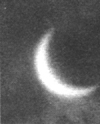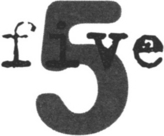


“I’m home,” Amy called out as she opened the front door.
Her mother’s voice rang out from the kitchen. “Amy, where have you been? I’ve been worried sick! It’s almost seven-thirty, and—” She stopped speaking when she came into the entranceway and realized that Amy wasn’t alone. “Oh! Hello.”
Amy introduced Aly and Aly’s mother. Nancy shook hands with Mrs. Kendricks and then turned to greet Aly. That was when she got her first good look at the face that was identical to her own daughter’s.
Amy heard the gasp her mother barely managed to stifle. Mrs. Kendricks chuckled in response to the surprise on Nancy Candler’s face. “Isn’t this remarkable?” she crowed. “I have to say, I was absolutely floored when I saw your daughter! Have you ever seen such a close resemblance?”
There was a slight quiver in Nancy’s voice as she responded. “It’s certainly a remarkable resemblance. Please, come sit down and have something to drink.” She ushered them all into the big kitchen, where Dr. Hopkins was already sitting at the table. He rose as Nancy introduced the guests, and there was no mistaking the shock on his face when he saw Aly and Amy together. He recovered quickly, shaking hands with Mrs. Kendricks, but he couldn’t keep his eyes off Aly.
“You’re a doctor?” Mrs. Kendricks asked. “Well, maybe you can come up with some medical explanation for this!”
“No, I—I don’t think I can,” Dr. Hopkins said.
“Oh, who cares how this happened?” Mrs. Kendricks said gaily. “It’s a happy coincidence, that’s all! It’s just pure luck that they found each other.”
Her cheerful acceptance of this so-called coincidence was in stark contrast to the reaction on Nancy’s face. Amy watched her mother’s eyes dart nervously between Amy and Aly.
“Actually, it was Amy who found me,” Aly said. “She saw me at the carnival last weekend.”
“Well, that’s no surprise,” her mother said. “I’m sure you weren’t wearing your glasses.”
Dr. Hopkins looked at Aly with extreme interest. “You wear glasses?”
“Poor child, she can barely see farther than three feet in front of her,” Mrs. Kendricks reported.
“Oh, Mom, I’m not that blind,” Aly remonstrated. To Amy she said, “I look totally gross with glasses on. And I can’t wear contacts because of my allergies. My eyes get too itchy. Do you have bad eyesight?”
“No, my eyes are fine,” Amy admitted.
“Well, that’s one thing that’s different about us,” Aly said. “I’ll bet you don’t have allergies, either.”
“No, no allergies.”
“Lucky you.”
“Would you like some coffee or tea?” Nancy asked Mrs. Kendricks. “How about you, Aly? Some juice, a Coke?”
Mrs. Kendricks answered for both of them. “No, thank you, we must be going. I’m sure we’ll be seeing each other again soon. I have a feeling we won’t be able to keep these two apart!”
Aly looked at Amy eagerly. “I’m having a sleepover on Friday. Want to come?”
“I’d love to!” Amy replied promptly “Can I, Mom?”
Nancy glanced uneasily at Dr. Hopkins. “I’m not sure …”
“It’s perfectly fine with me,” Mrs. Kendricks assured her. “Aly’s having four of her friends, and one more is no bother. My husband and I will be home, of course, so the girls can’t get into too much trouble!”
Nancy twisted her hands together. She didn’t look too thrilled at the prospect, but what possible reason could she come up with to say no? “Well … I suppose that’s all right.”
There was an exchange of phone numbers, and then Amy and her mother followed Mrs. Kendricks and Aly to the door. Amy stepped outside to wave as they got into their car.
“See you on Friday!” Aly called.
“Friday!” Amy echoed happily. She watched the car drive away. And then she had to go back inside and face her mother.
Nancy Candler was clearly distressed. “Now, what was that all about?”
Amy couldn’t fake innocence. Nancy knew her too well. “Like Aly said, I saw her at the carnival. I figured she had to be another Amy from Project Crescent, so I wanted to meet her.”
Dr. Hopkins frowned. “Amy, you know it could be dangerous for the Project Crescent clones to get involved with each other. The organization could still be watching you.”
“Only now I know she can’t be a clone,” Amy went on. “Not if she’s got allergies and wears glasses. And you should have seen her ice-skating. No one could fake being that bad! It has to be like Mrs. Kendricks said, just a weird coincidence, right? So there’s no reason why we can’t be friends.”
But her mother and Dr. Hopkins were looking at each other in a way she didn’t like. She waited, but neither said anything.
Amy pressed them. “She’s not one of the twelve clones, right?”
Dr. Hopkins nodded at Nancy, and Nancy spoke. “There weren’t twelve clones, Amy. There were thirteen.”
“Thirteen,” Amy repeated. “Thirteen?” This was unreal. Here she’d been believing she knew everything about her bizarre background. Apparently not. She glared at her mother and waited for further explanation. Dr. Hopkins broke in with a long, complicated discussion of gene splitting and cell structure and spontaneous regeneration. What it all came down to was that the scientists had cultivated twelve genetically designed embryos, just as Amy had been told, but in the way that ordinary twins evolve, one of the embryos had divided.
“We observed them both,” Nancy told her, “and one of the divided embryos—Amy, Number Twelve—developed as we’d expected, in a manner identical to the first eleven. But in the thirteenth, the DNA was different. We could never explain why; it was an accident of nature, a genetic fluke. And when Amy, Number Thirteen, reached the fetal stage, we could ascertain that she wouldn’t have the genetic perfection of the others.”
Dr. Hopkins picked up the story. “We didn’t know what to do. The organization funding the experiment was only interested in perfect clones. Dr. Jaleski assumed that Number Thirteen would be destroyed.”
Amy’s hand flew to the pendant she always wore around her neck. It was a little silver crescent moon, and it had been given to her by Dr. Jaleski just before he died. She couldn’t believe that the kind man, the director of Project Crescent, would destroy an innocent imperfect child.
She was right.
“Dr. J wouldn’t do it,” her mother said. “But he knew we had to dispose of the infant before the organization learned about her. He arranged for some sort of secret adoption. He never told us where, or who took the infant. He thought it would be safer for us not to know, in case the organization somehow discovered her existence.”
Amy absorbed this new information. “And that’s Aly? The thirteenth Amy?”
“It’s possible,” Dr. Hopkins admitted. “The physical resemblance is extraordinary, and she obviously doesn’t have your capabilities.”
Nancy’s eyes were dark with concern. “I don’t think it’s a good idea for you and Aly to become close friends, Amy. It could be dangerous for you. And her, too.”
“Why?”
“The organization still exists, Amy. You know that. But we don’t know what they know, or what they’re capable of learning. This situation could interest them.”
Amy tried to not to show her impatience. Nancy saw danger around every corner. Personally, Amy sometimes thought her mother was a little paranoid.
And though Amy knew she had been under surveillance, she didn’t believe the organization was interested in her anymore. It had been ages since she’d felt directly threatened. And so Nancy’s words depressed her.
“Mom, I like her. I want to be her friend.”
Her mother sighed. “I guess I don’t have any real reason to forbid you to see her. But please, sweetie, be very careful. Don’t give Aly or her family any reason to believe that the two of you have anything more in common than an unusual resemblance.”
“I won’t,” Amy promised. She had absolutely no desire to show off her skills to this new friend. She didn’t want to be known as someone with extraordinary talents. She wanted Aly to think she was one hundred percent ordinary.